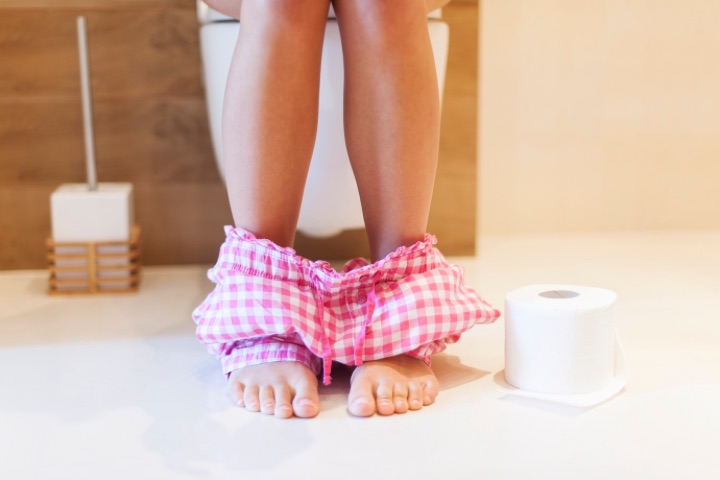Faecal incontinence is a condition that affects many women, causing difficulty controlling bowel movements and resulting in involuntary leakage of feces. It is a common condition that affects people of all ages, but it is more prevalent in women than men. The condition can significantly impact a woman’s quality of life, causing embarrassment, anxiety, and social isolation.
The symptoms of faecal incontinence in women include the involuntary release of feces, an inability to control bowel movements, and the sudden urge to defecate. In some cases, faecal incontinence may be accompanied by gas incontinence or the passage of mucus from the rectum.
There are several causes of faecal incontinence in women, including damage to the muscles and nerves of the rectum and anus, chronic diarrhea, and constipation. The condition can also be caused by certain medications, pelvic organ prolapse, and radiation therapy to the pelvic area. Factors such as aging, pregnancy, and menopause can also make women more susceptible to faecal incontinence.
Faecal incontinence in women is often associated with pelvic floor dysfunction. The pelvic floor muscles are responsible for controlling bowel movements, and when they become weakened or damaged, it can lead to faecal incontinence.
Vaginal delivery can cause significant trauma to the pelvic floor muscles, leading to weakness or damage. In fact, women who have had vaginal deliveries are more likely to experience faecal incontinence than those who have had caesarean sections. The risk of faecal incontinence also increases with the number of vaginal deliveries a woman has had.

Photo Credit: jcomp
Episiotomy and perineal tears during delivery can also contribute to pelvic floor dysfunction and faecal incontinence.
Menopause can also contribute to pelvic floor dysfunction and faecal incontinence. As oestrogen levels decline, the tissue in the pelvic area can become thinner and less elastic, leading to weakened pelvic floor muscles.
Pelvic organ prolapse, a condition in which the pelvic muscles become weakened and allow the organs to shift out of place, can also contribute to faecal incontinence. When the rectum drops or protrudes into the vaginal canal, it can cause difficulty in controlling bowel movements.
Pelvic floor exercises, commonly known as Kegels, can help strengthen the pelvic floor muscles and improve bowel control. Women can learn how to perform these exercises from a physiotherapist or pelvic floor specialist.
Research has shown that pelvic floor muscle training can significantly reduce faecal incontinence. However, performing the exercises correctly and consistently for optimal results is important.
In addition to pelvic floor exercises, there are also other non-invasive treatments for faecal incontinence, such as biofeedback therapy and bowel retraining. It is best to speak with a healthcare professional to determine the most appropriate treatment plan for individual needs.
Faecal incontinence in women can be triggered or exacerbated by a range of dietary factors. These include:
Fortunately, some dietary changes can help alleviate the symptoms of faecal incontinence. These include:
Women should consult a healthcare professional for further advice and treatment options if dietary changes do not improve faecal incontinence symptoms.

Photo Credit: prostooleh
Medical treatments for faecal incontinence in women depend on the underlying cause and severity of the condition. In some cases, lifestyle changes, such as dietary modifications and pelvic floor exercises, may be enough to manage the symptoms. However, in more severe cases, medical interventions may be necessary.
In cases where the muscles or nerves responsible for bowel control are damaged or weakened, rectal surgery may be necessary. This can include procedures such as sphincteroplasty, where the anal sphincter muscle is repaired or reconstructed, or the creation of a colostomy, which involves diverting the bowel through an opening in the abdomen.
If nerve damage is the underlying cause of faecal incontinence in women, medications that promote nerve function may be prescribed. These can include drugs that increase muscle strength or stimulate the bowel. Botulinum toxin injections may also be used to relax overactive muscles in the anal area.
Bulking agents, such as injectable substances or silicone implants, can be used to bulk up tissues around the anus and help improve bowel control. Anal plugs, which are small devices inserted into the rectum to prevent leakage, may also be recommended in some cases.
Sacral nerve stimulation involves the implantation of a small device that delivers electrical impulses to the nerves responsible for bowel control. This can help to improve the function of these nerves and reduce the symptoms of faecal incontinence in women.
It is important to note that all medical interventions carry some degree of risk and potential side effects. Women should discuss the benefits and risks of each potential treatment option with their healthcare provider before making a decision.

Photo Credit: Freepik
faecal incontinence is a distressing and embarrassing condition that can have a significant impact on a woman’s quality of life. While there are medical treatments available for faecal incontinence, lifestyle changes can also play a critical role in managing the condition. Here are some lifestyle changes that may help:
Regular exercise can help prevent and manage faecal incontinence by strengthening the pelvic floor muscles. Exercises targeting the pelvic floor, such as Kegels, can effectively reduce incontinence episodes. Women should consult with their healthcare provider to determine the best exercise program for their needs.
Being overweight can increase the risk of faecal incontinence. Maintaining a healthy weight through a balanced diet and regular exercise can help reduce the pressure on the pelvic floor muscles and improve bowel control.
Smoking can cause chronic coughing, weakening the pelvic floor muscles and leading to incontinence. Quitting smoking can be challenging, but it is a crucial step in improving overall women’s health and reducing the risk of incontinence.
Biofeedback therapy is a non-invasive treatment that uses special sensors to measure muscle activity in the pelvic floor. The sensors provide feedback to the patient, allowing them to learn how to control the muscles and improve bowel control. Biofeedback therapy is typically performed in conjunction with pelvic floor exercises.
Bowel retraining involves establishing a regular routine for bowel movements. Patients are instructed to use the toilet at specific times during the day, regardless of the urge to defecate. Over time, this routine can help improve bowel control and reduce incontinence episodes.

Photo Credit: gpointstudio
Overall, lifestyle changes can be an effective way to manage faecal incontinence in women. A multi-disciplinary approach that includes healthcare providers, nutritionists, and physical therapists can provide a comprehensive treatment plan that is tailored to the individual’s needs and goals.
Below are frequently asked questions about faecal incontinence in women:
Vaginal delivery can cause damage to the pelvic floor muscles, which can result in faecal incontinence. Women who have had vaginal deliveries are at a higher risk of developing faecal incontinence than women who have had a cesarean section.
Episiotomies are surgical cuts made at the opening of the vagina during childbirth to aid in the delivery of the baby. While an episiotomy can reduce the risk of tearing, it does increase the risk of faecal incontinence.
Yes, perineal tears can cause damage to the muscles and nerves in the pelvic floor, which can lead to faecal incontinence. The tear’s severity and the damage’s extent will determine the likelihood of developing faecal incontinence.
Yes, obesity can increase the risk of faecal incontinence. Excess weight puts extra pressure on the pelvic floor muscles, which can cause weakness and contribute to faecal incontinence.
Yes, pregnancy can cause faecal incontinence. The weight and pressure of the growing fetus can weaken the pelvic floor muscles. Additionally, hormonal changes during pregnancy can also impact bowel function and contribute to faecal incontinence.
Gut health plays a crucial role in faecal incontinence. Digestive issues such as irritable bowel syndrome, constipation, and diarrhea can all contribute to faecal incontinence. Maintaining a healthy gut through a balanced diet and exercise can help manage symptoms of faecal incontinence.
Yes, increasing dietary fiber intake can help manage faecal incontinence in women. Fiber helps to bulk up the stool and make it easier to pass, reducing the risk of accidents. Good sources of fiber include fruits, vegetables, and whole grains.
Yes, drinking enough water is important for managing faecal incontinence. Staying hydrated can help prevent constipation and keep the stool soft, making it easier to pass. Women should aim to drink at least eight glasses of water a day.
Maintaining a regular bowel routine can help manage faecal incontinence by preventing constipation and maintaining regularity. Women should establish a routine by going to the bathroom at the same time each day and taking their time to ensure a complete bowel movement.